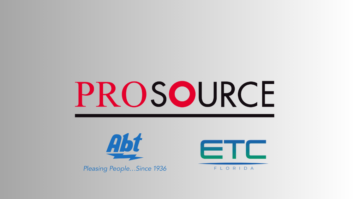Lou Pagliarini, Vice President, Consumer Electronics & Appliances Industry VP, GE MoneyIf you’re unaware of The Credit CARD (Accountability, Responsibility and Disclosure) Act of 2009, keep reading. The law, which was signed last May, will have a profound effect on your retail business.
In accordance with the new regulations, revolving promotions that are less than six months in duration (i.e., “90 Day” promotions) are no longer allowed as of February 22, 2010. Additionally, the Office of Thrift Supervision (OTS) has instituted guidelines that also impact promotional financing, and as a result revolving promotions that do not require a minimum payment (i.e., “No Pay” promotions) are also no longer allowed
as of February 22, 2010.
Despite these changes, there are a variety of private label financing promotions still available today, including “with payment/no interest” promotions, from credit program providers like GE Money. Additionally, many lenders are proactively driving new product development efforts designed to identify and introduce a number of appealing promotions in the future.
WHO do these changes impact?
The Credit CARD Act affects ALL financial institutions and retail businesses that offer revolving credit programs, as well as consumers who utilize them.
WHAT does this mean for the future of promotional credit?
Research indicates that consumers may have less access to credit, and will seek promotional financing as a way to structure their budget and to make a purchase affordable with predictable payments over time. Promotional financing in the form of deferred interest terms and extended payment programs will continue to be a valuable tool to help consumers get the products they need.
If you haven’t discussed the Credit CARD Reform Act with your credit vendor, reach out to them immediately. Take all the information received from various lenders and implement those instructions carefully. If you supply your own in-house financing, take the time to understand how these rules apply to your retail business.
The sooner you do this, the better — it’s one less thing you’ll have to worry about after mid-February when you’d rather focus on how to close out the quarter with strong sales.
About GE Money
As a leader in the financing industry for over 70 years, GE Money remains dedicated to serving the CE/AP market for the long term and is helping retailers large and small navigate the many changes driven by new regulations.













